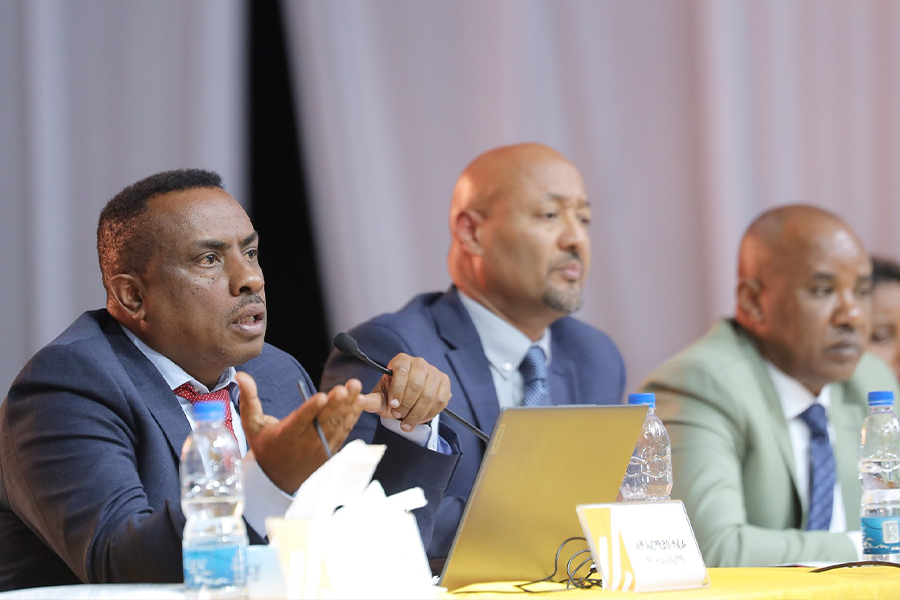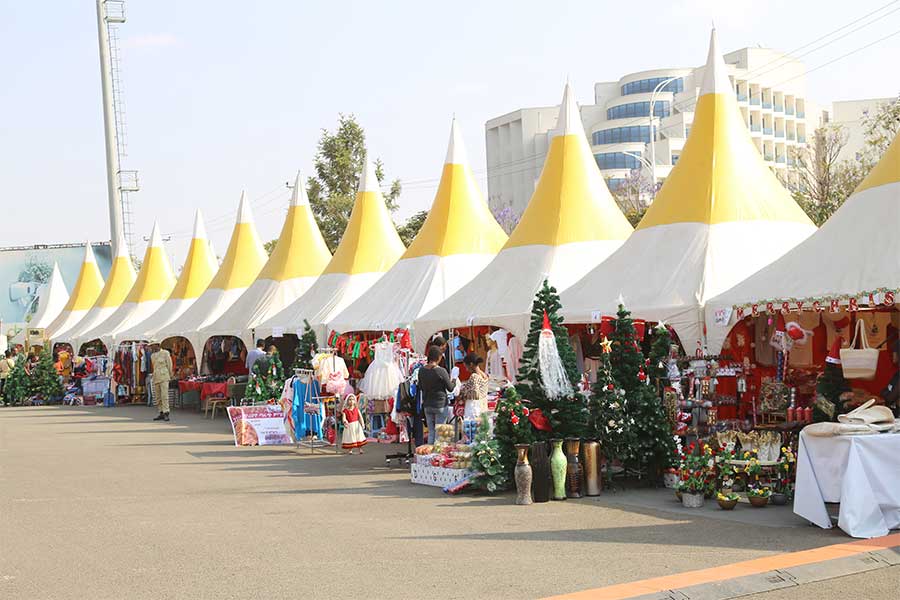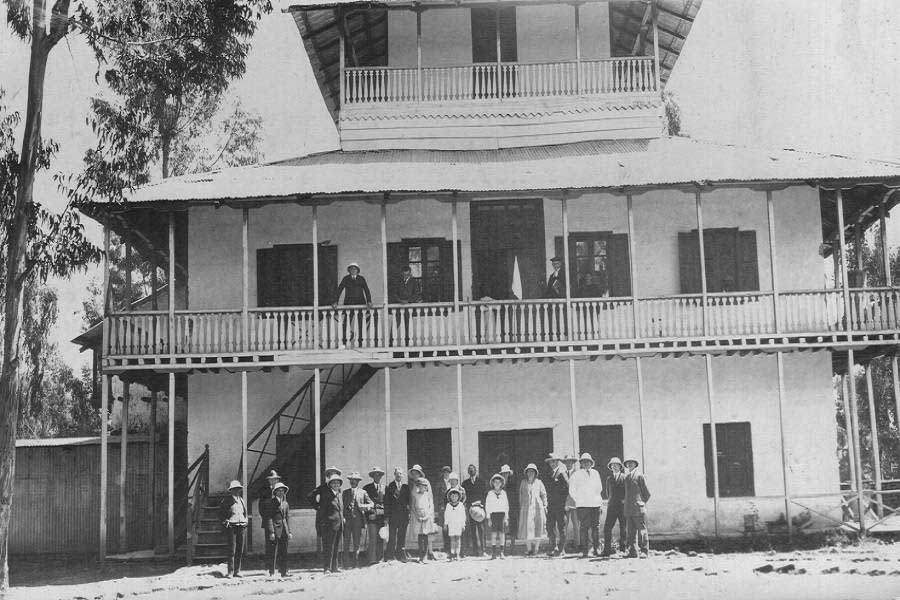
Dec 11 , 2020
By Christian Tesfaye
Every once in a while, society has a rebirth. History still matters and may ultimately be what decides how things pan out. But these brief moments that occur once in a generation make it appear as if there can be new beginnings with clean slates. Ethiopia has had two of these. One was in 1974. The other was in 2018. Some may include 1991, but it was in many ways a continuation of the flames that burned since the mid-1970s.
For the youth, these are truly exciting times. Change is desirable. There is no accumulated cynicism threatening to break their wills. They have high hopes, sometimes enough for them to decide to sacrifice their lives.
Unfortunately, they rarely get to be the protagonists in these revolutions. They are in the background or at best employed as foot soldiers. The old men still control the power levers, and they could not be further from idealistic. They have historical memory, but it is highly distorted by their own biases. They have an understanding of realpolitik, but it has only served to make them more cynical.
When change comes, they are still the ones controlling the political and economic power. The social revolution comes from the bottom, rarely ever from the old men in control of the patriarchal system. Thus, how they respond is often as important, if not more, as the change that erupts from the bottom. For every action, there is an equal and opposite reaction.
These old men are also the custodians of tradition and history. The youth may be trying to change a certain political and economic system, but it rarely does it ever do away with tradition in its entirety.
If our cultures and history inform our identity, how can we entirely get rid of the old men?
It is at least impossible to do it in one go. It is a dilemma.
But who are these old men anyways?
Call it Uncle Sam or The Man. But it is the group that wields an outsized economic and political power. This group is almost always a group of old men that spoil the idealism and stand in the way of change, as it is their privilege that is usually threatened.
It is this same group that has turned what was supposed to be a period of democratic and pluralist dawn for Ethiopia sour, first in 1974 and then in 2018. The change of administration two years ago heralded a more tolerant and resilient Ethiopia. Just two years after that, there is armed conflict. All the more ironic is seeing these old men blame one another as to whose fault the whole thing is.
Will this cycle ever have an end?
Perhaps. One route is a violent overthrow of the prevailing economic and political system. But the old men control much of the means of war-making; thus there is no guarantee that such a plan would work out. More importantly, any movement that justifies violence as a means to a political end is, by definition, corrupted. It should be abandoned.
The better route would be to advocate for the alleviation of what makes these old men insecure, which is a loss of privilege and status. That any meaningful social change can only come at the reduction of their economic and political power is evident, because both of these are limited resources. Everyone cannot become a billionaire or a prime minister at once. But the majority can be a thriving middle class with a measure of political power expressed through universal suffrage.
But "what should be" should not be rammed through everyone’s throat without attempting to gain a certain level of consent and understanding. The powerful will not give up power of their own accord, but sustained and consistent social movement will chip away at their influence. This is a process that will take longer than we are eager to see change, but it is a compromise if we want to avoid violence.
PUBLISHED ON
Dec 11,2020 [ VOL
21 , NO
1076]


Viewpoints | May 25,2019

Featured | Dec 28,2019

View From Arada | Aug 20,2022

My Opinion | Jul 22,2023

Viewpoints | Aug 09,2025

Viewpoints | May 21,2022

View From Arada | Apr 16,2022

Viewpoints | Jun 12,2021

My Opinion | Aug 05,2023

Commentaries | Jan 29,2022

Photo Gallery | 178047 Views | May 06,2019

Photo Gallery | 168257 Views | Apr 26,2019

Photo Gallery | 159007 Views | Oct 06,2021

My Opinion | 137042 Views | Aug 14,2021
Commentaries | Oct 25,2025

Dec 22 , 2024 . By TIZITA SHEWAFERAW
Charged with transforming colossal state-owned enterprises into modern and competitiv...

Aug 18 , 2024 . By AKSAH ITALO
Although predictable Yonas Zerihun's job in the ride-hailing service is not immune to...

Jul 28 , 2024 . By TIZITA SHEWAFERAW
Unhabitual, perhaps too many, Samuel Gebreyohannes, 38, used to occasionally enjoy a couple of beers at breakfast. However, he recently swit...

Jul 13 , 2024 . By AKSAH ITALO
Investors who rely on tractors, trucks, and field vehicles for commuting, transporting commodities, and f...

Oct 25 , 2025
The regulatory machinery is on overdrive. In only two years, no fewer than 35 new pro...

Oct 18 , 2025
The political establishment, notably the ruling party and its top brass, has become p...

Oct 11 , 2025
Ladislas Farago, a roving Associated Press (AP) correspondent, arrived in Ethiopia in...

Oct 4 , 2025
Eyob Tekalegn (PhD) had been in the Governor's chair for only weeks when, on Septembe...

Oct 25 , 2025 . By YITBAREK GETACHEW
Officials of the Addis Abeba's Education Bureau have embarked on an ambitious experim...

Oct 26 , 2025 . By YITBAREK GETACHEW
The federal government is making a landmark shift in its investment incentive regime...

Oct 27 , 2025
The National Bank of Ethiopia (NBE) is preparing to issue a directive that will funda...

Oct 26 , 2025 . By SURAFEL MULUGETA
A community of booksellers shadowing the Ethiopian National Theatre has been jolted b...